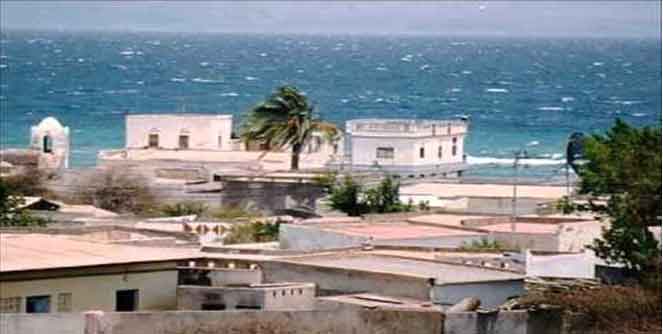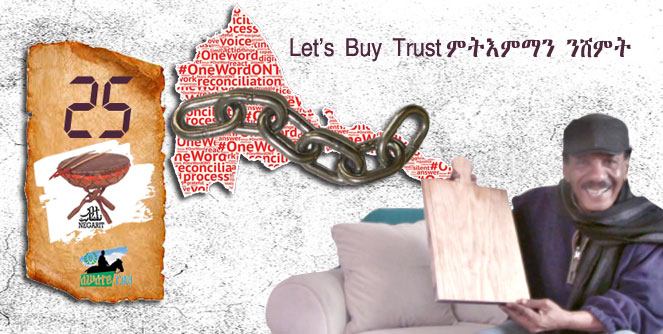Assab: The Eritrean Nose

Was he right? Paulo Neruda! In his verses (as re-recounted in the movie Il Postino) in respect to an aquatic-terrestrial symbiotic relationship? At least, one (I, for example) would subscribe to the imaginative bliss it engenders in the mind. According to Neruda, with each “Wefari Bahri“, with each washing of the waters to the shore, the sea tells its name. The sea tells the landmass its name repeatedly and repeatedly. In that case few lands, few nations lent ear to what they were told. One did that we know. Eritrea.
Red Sea. Erythrean Sea. Mar Rosso. al-Baḥr al-Aḥmar. Qeyh Bahri. More relevantly, Asa Bade.
And this aphorism. Was he right? Pascal, Blaise! If Cleopatra’s (that crucible of three civilizations-Egypt, Greek, Rome) nose was a bit of a shorter, the face of the world would have been changed. Pascal mused. Bless Blaise! Sure, Julius Caesar and Mark Anthony would have known better than being ogled and smitten by the sensual “Wuba of Misri” instead of moving to conquer the Levant. Or the Bactria.
Now the multi-billion Nakfa question is this: Had the Eritrean Nose, the Dankali strip been a tad shorter, the whole history of East Africa might have been different. The lives of Eritreans, Ethiopians, Djiboutis, would certainly have been different and even affecting the Somalis, the Sudanese and Kenyan.
If Eritrean history since (1869-2011) was to be reduced to one single critical word -crudely and just for a minute-, few would disagree that Assab might be the best candidate.
It stands uniquely as a port city that shoulders more than its share. Without discounting the worth of the whole Eritrea, no place is so important in determining the history (and thus future) of the nation than the place and the people that started it all. Assab. Afars. 1869. 2018. Has Eritrea come full circle? Is it dying? Is it going to be reincarnated?
Beyond Grievances
Eritrea is a land, so we learned in our past 50 years. Eritrea is also people, a dear and extremely important lesson we are taking deep to our hearts. In this recalibrated quest for finding elusive Eritrea, we pledge to listen to our nation, to our people. Today to Eritrean Afars.
In the real-life soap drama we are forced to watch, the Eritrean leader, ‘smu Qes yitrawNA’ who just visited Assab, with the main beneficiary PM Abiy Ahmed clearly showed the world that he was not ashamed to sell Assab to highest regional bidders. All that love and peace professed from South was meant to share Assab. Addis is now full of Assab-themed businesses. Colluli Mining Share Co., jointly owned by Danakali Ltd. of Australia and the state-owned Eritrean National Mining Co. are munching the potash deposits; Danakali is now ‘the potash province’.
But where are the Eritrean people? Where are the Afars? Yes, those who are not languishing in Ethiopian refugee camps are being bombarded by UAE air strikes. For all practical purposes except the map, Eritrean regime appears to surrender Assab to the regional actors.
In times of confusion and cacophony, we should first locate the basics as the basics, the fundamentals are the first causality. The basics as pertains to Assab and the Dankali is this: Assab is not Eritrean territory. Yes, it is not Eritrean territory. Assab, the capital of Denkali, is Eritrea itself. Assab is not Eritrean; it is Eritrea itself. It is absurd to talk of Assab without Eritrea, as vice versa. It belongs to Eritrea. In short, have you ever met a person without a Nose, barring Lord Voldermort? Ask Burhan Ali.
A Nation Without a Nose?
“If I had lost an arm or a leg, it would be less insupportable; but a man without a nose! “ Nicolai Gogol’s Major Kavalyov.
In Eritrea the nation, Dankali is the Nose, Assab would be the…It is the nostrils where the nation breaths in air, well, from its originator–its source, the Red Sea, and it breaths out life to it. It gives the beauty to the face, as in Regina Cleo. It is the centrality of the nation’s potential, image, worth, and future. When African countries were born by colonialists, Eritrea was made by its children. With Assab, as the finishing touch, on May 26, 1991. Now the Eritrean slave trader is turning Eritrea into a major Kovalyov. Soon we will awaken to learn the Nose is gone; followed by others.
Remember Osman Buri, “Sebar Nakura”
I would like to retrace back to remind of the basics, to be reminded of the basics I try to mine consolation, and inspiration from. In the corners of Eritrea, in the islands, men of valor, our common ancestors, from all over Eritrea, were detained together. Inadvertently, it is in these unlikely places, such as Nakura, Assab, and other Italian colonial prisons, the shared narrative of one Nation hatched that brought forth our Eritrea. They didn’t know each other, before their daring miscalculations or unfortunate mishaps landed them in Nakura prison. They suffered together. They died together. They broke the chains of, the Eritrean Alcatraz, ‘Nakura’ together.
Zemad Wedi Ekud from Barka; Degiat Mahray from Hamasien; Mohammed Nuri, Abubeker Ahmed from Saho; and the legendary Osman Buri from Afar.
Could we get the lesson? Any less would make less of all us. Could we break the chains of PFDJ’s Nakura together?
Eritrea is indeed a unique nation. Its existence defied historical logic. Its post-colonial present defies any logic. It was born on disproving the time-tested proverb; blood is thicker than water. And its torturous and agonizing life was presented as evidence of that.
Our great-grand ancestors, from Osman Buri, to Degiat Bahta to grand-fathers like Ibrahim Sultan, Omar Hakito, and Weldeab Weldemariam, had the mission of disproving blood is thicker than water. We are closer to our Ethiopian cousins, yes, yes we are closer to our Sudanese cousins. We have blood relationship of millennia old. Afars across both side of Bure, Tigrignas across both side of Mereb; Beni-Amirs on borders of Sudan. It is undeniable and cherish-able.
But, we decided our lot to suffer together as proud denizens and citizens chained to the Nation. At greatest odds, we gambled for glory or agony and gave it all, the passion of millions of our lives. Instead of the familiar road of choosing our cousins, we (who have known just little over a century) opted to travel on the road never travelled, leaving novel footsteps in sands of history, daring to mark a common destiny of believers in Eritrea. We believe in Eritrea even though the Red Sea god, our Poseidon, has been inexplicably cruel to us.
Are we being punished for the tears, sweat, blood and deaths on the Red Sea coasts from Italians of 1890s to Isaias of 2010s (Mieeter, Wia, Gedem, Gahtelay, Gelaelo, Bahraia-Naval Base, Nakura, Dahlak, Kilma, Assab)? Is our Poseidon jealous because we haughtily took its name? Erythrea.
As this nation is destined to spectacular rise and POSSIBLY eventual homicide, shall we dare to remember that there was once an alliance made by our ancestors, in the pages of history? We bled for each other in the quest for our nation-hood and statehood. Hence in the search for commonality, wouldn’t the self-determination until secession mantra appears to be an obstacle rather than a uniting theme that better be jettisoned as excess cargo dragging our little boat (very little) boat as it traverses in these turbulent waters? I believe Eritrean Afar’s legitimate and equitable and noble demands would and should still be covered under clearly defined, decentralized system of governance which consciously seeks to adequately redress wrongs and protect minorities and their legal rights to share the wealth of their territories. I suggest “Eritrean Afar State in Exile” (EASE), Red Sea Afar Democratic Organization (RSADO) revisit their stances.
Worth mentioning is it is very true most of us from highland failed to recognize and champion for the refugee rights of the most disadvantaged from the disadvantaged, the Afars and the Kunamas. Our two eyes usually are focused on the known Ethiopian and Sudanese refugee camps, (Shegreab, Hintxax, Adi Harish, Mai Ayni, Shimelba); rarely do we remember Assayta and Berhale. Bless these who remember them, like the perennial Eritrean friend and benefactor Dan Connell. For that and many of lapses, we owe you our sincere apologies.
The dangers to the survival of our nation and identity is real. Only unity of stake-holders of the nation can save it as was in history. It is our mission to prove, (as the disproving is done by our ancestors) yes, indeed water is thicker than blood and to show we could squeakily win against these turbulent and forbidding waters, even by a nose because that coast line is too long, its water is too saline, and too RED!
Aasa Baday,N’agata” (Red Sea is our homeland)



Awate Forum